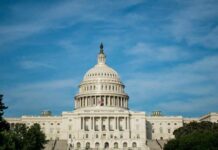The European Union’s (EU) proposed packaging regulations aimed at reducing waste in various consumer products have raised alarms within American industry groups, potentially leading to trade tensions between the United States and the EU. As reported in a recent Politico article, these American industry groups have drawn the attention of U.S. government agencies by actively opposing these regulations. Their primary worry is that the proposed legislation could enforce strict requirements for recycled content and reuse in both domestic and imported products, which might, in turn, reduce exports to Europe.
The American Chamber of Commerce to the EU has expressed reservations, voicing concerns that these proposed restrictions could negatively impact international trade in various products. The U.S. Dairy Export Council is seeking exemptions from these requirements, arguing that the logistical challenges of sending used packaging back to U.S. producers for refilling would be counterproductive and environmentally intensive. Additionally, the Distilled Spirits Council of the U.S. is apprehensive that specific provisions could impede branding efforts and create opportunities for counterfeiters.
To address these concerns, officials from the U.S. Agriculture and Commerce Departments have journeyed to Brussels for discussions. Earlier this year, the U.S. mission to the EU co-hosted the “US-EU Dialogue on Sustainable Packaging” in the European Parliament, underscoring the importance of sustainable packaging practices.
Initially slated for a vote this week, the proposal has been postponed until the following month due to divisions within the EU parliamentary committee. This delay is a result of intensified lobbying efforts by the United States, underscoring the seriousness of the situation.
On the opposing side of the debate, environmental advocacy groups are urging lawmakers to proceed with the regulations, arguing that they are indispensable for achieving environmental objectives. Marco Musso of the European Environmental Bureau stressed the necessity of these measures, stating that they are more than essential to fulfill their intended environmental goals.
This situation underscores the tension within the United States between environmental objectives and domestic trade interests. American officials are working to strike a balance between these concerns. There is growing apprehension about the potential adverse impact of these regulations on various sectors of the U.S. economy.
Max Teplitski, Chief Science Officer at the International Fresh Produce Association, emphasized their resolve and active involvement in this matter. The association represents U.S.-based and global exporters to Europe as well as European producers.
In the coming weeks, the debate over these packaging regulations is expected to intensify as stakeholders continue to voice their concerns and interests. The outcome could significantly influence domestic trade relations within the United States.



























